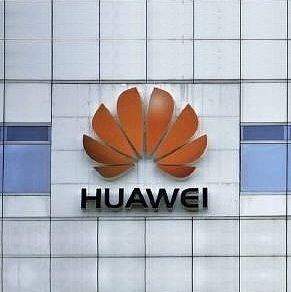The founder and president of Shenzhen-based Huawei, Ren Zhengfei, has criticised the behaviour of the United States in his first international interview following the arrest of his daughter, Meng Wanzhou.
The reclusive founder of Huawei claimed the arrest of CFO Wanzhou in December was a politically motivated act, and he vowed that the US campaign against the firm he had created would not crush it.
Last month Zhengfei had said that the Chinese government had never asked the company to spy. He had been speaking after the arrest of a Huawei employee in Poland last month on espionage charges.
![]()
US pressure
The founder of Huawei used his interview with the BBC to make clear his response to pressure from the United States to ban the use of Huawei equipment in 5G networks.
Last week, US Secretary of State Mike Pompeo had warned US allies against using Huawei technology, saying it would make it more difficult for Washington to “partner alongside them”.
The US government has repeatedly asked its allies not to use equipment from Huawei, and a large number of nations have signalled their intention to ban the Chinese kit.
“There’s no way the US can crush us,” Zhengfei reportedly said. “The world cannot leave us because we are more advanced. Even if they persuade more countries not to use us temporarily, we can always scale things down a bit.”
But Zhengfei did admit the loss of business could hurt the Chinese networking giant.
“If the lights go out in the West, the East will still shine,” he said. “And if the North goes dark, there is still the South. America doesn’t represent the world. America only represents a portion of the world.”
Australia, New Zealand and the United States have all opted to ban the use of Huawei kit for 5G networks.
Canada is reviewing whether the company’s products present a serious security threat, but is thought to have already ruled out Huawei kit for government contracts.
Mixed signals
There are mixed signals from the UK however.
In November the British government warned telcos against using equipment makers such as Huawei when rolling out 5G networks.
But then this week officials at GCHQ’s National Cyber Security Council (NCSC) reportedly said they do not support a total ban on Huawei equipment, as they believe that risks could be managed by testing the products at a special laboratory overseen by intelligence officials.
A British government review is due out in March or April, and could overrule this, and ban the use of Huawei equipment.
Zhengfei told the BBC that Huawei “won’t withdraw our investment because of this. We will continue to invest in the UK.”
“We still trust in the UK, and we hope that the UK will trust us even more,” he said. “We will invest even more in the UK. Because if the US doesn’t trust us, then we will shift our investment from the US to the UK on an even bigger scale.”
Politically motivated
The BBC interview also gave Zhengfei the chance to discuss the arrest of his daughter, Meng Wanzhou, Huawei’s chief financial officer.
Wanzhou was arrested in early December by Canadian authorities for alleged sanction busting with Iran. The arrest was carried out on behalf of the United States.
She is facing 23 charges, with the charges split across two indictments by the US Department of Justice.
The first covers claims Huawei hid business links to Iran – which is subject to US trade sanctions. The second includes the charge of attempted theft of trade secrets.
Zhengfei made clear his anger at the US actions.
“Firstly, I object to what the US has done,” he said. “This kind of politically motivated act is not acceptable.”
“The US likes to sanction others, whenever there’s an issue, they’ll use such combative methods,” he added. “We object to this. But now that we’ve gone down this path, we’ll let the courts settle it.”
Zhengfei also responded to accusations that Huawei could be used by the Chinese government for spying.
Under a law introduced in 2017, Chinese firms are compelled to “support, co-operate with and collaborate in national intelligence work.”
But Zhengfei dismissed this, and said allowing spying to take place using Huawei kit was not a risk he was prepared to take.
“The Chinese government has already clearly said that it won’t install any backdoors. And we won’t install backdoors either,” said Zhengfei. “We’re not going to risk the disgust of our country and of our customers all over the world, because of something like this.”
“Our company will never undertake any spying activities,” he added. “If we have any such actions, then I’ll shut the company down.”
Zhengfei did however confirm that there was a Communist Party committee in Huawei, but this is a requirement for all companies (both foreign or domestic) operating in China.
Do you know all about security? Try our quiz!





